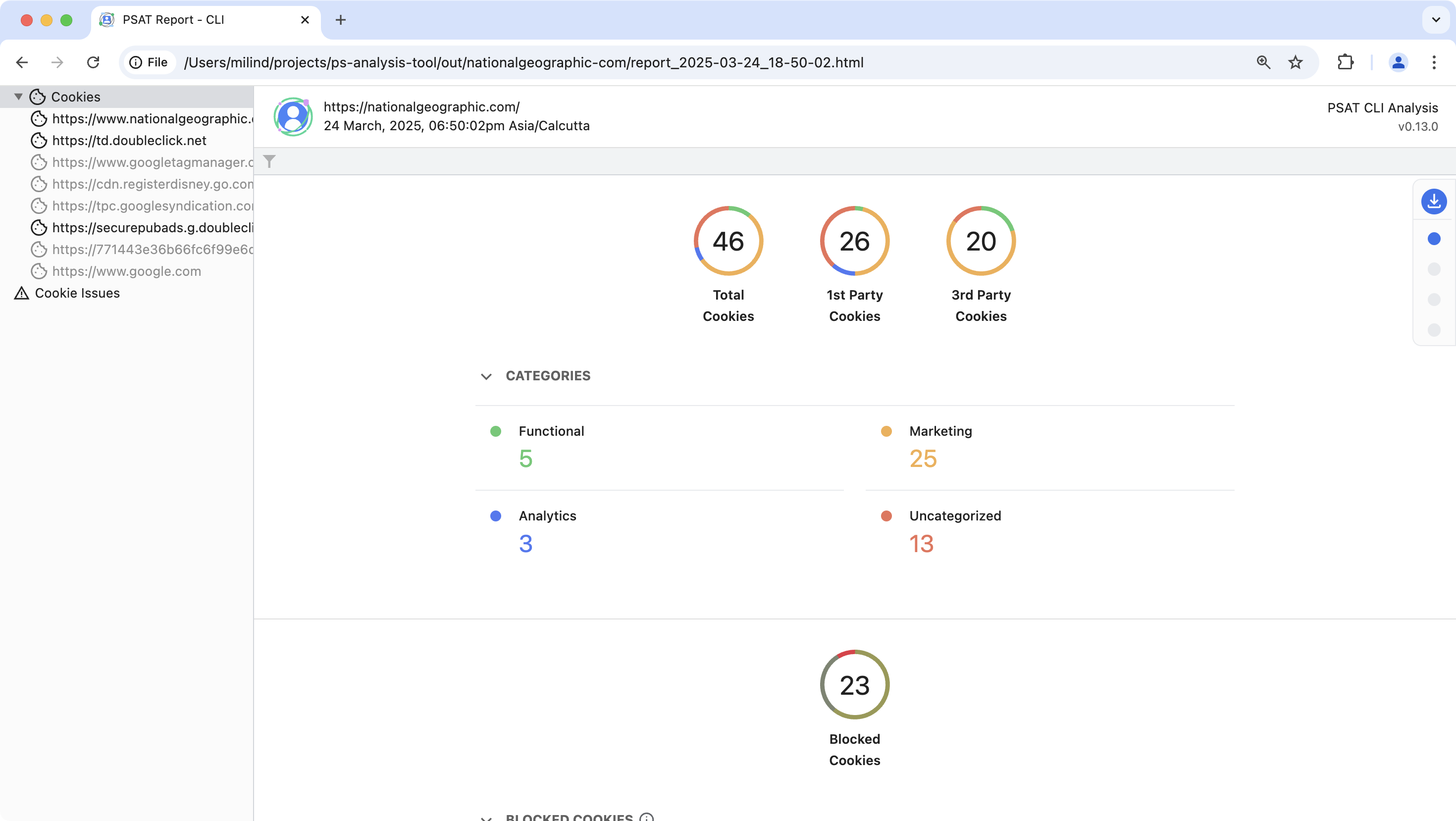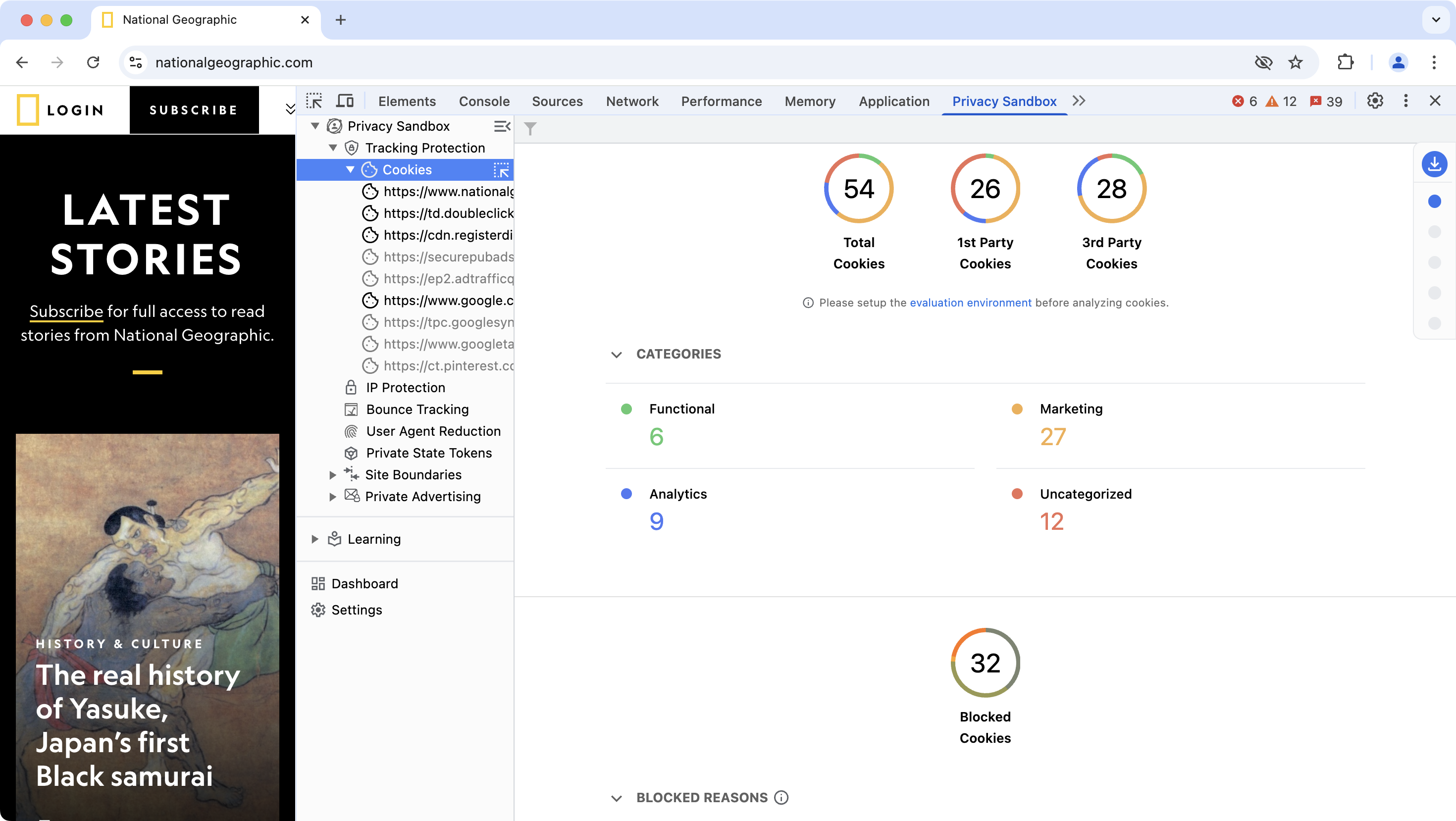@google-psat/cli v0.14.1
Privacy Sandbox Analysis Tool CLI
The Privacy Sandbox Analysis Tool CLI is designed to help developers audit and analyze their websites in Chrome environments where the unrestricted use of 3P cookies has been blocked.
Using the CLI
PSAT CLI allows you to audit a single website or multiple websites using a sitemap or a CSV file. It generates a report to help users draft future action items to prepare their websites for environments where the unrestricted use of 3P cookies has been blocked.
Required Node Version: 18 or later
Installation
npm i -g @google-psat/cliUsage
psat -u https://example.comBy default, PSAT generates the report as an HTML file. You can open it in a web browser of your choice and use it to filter the output.
CLI option
Usage: npm run cli [website-url] -- [options]
CLI to test a URL for 3p cookies.
Arguments:
website-url The URL of a single site to analyze
Options:
-V, --version output the version number
-u, --url <url> The URL of a single site to analyze
-s, --source-url <url> The URL of a sitemap or CSV to analyze
-f, --file <path> The path to a local file (CSV or XML sitemap) to analyze
-n, --number-of-urls <num> Limit the number of URLs to analyze (from sitemap or CSV)
-d, --display Flag for running CLI in non-headless mode (default: false)
-v, --verbose Enables verbose logging (default: false)
-o, --out-dir <path> Directory to store analysis data (JSON, CSV, HTML) without launching the dashboard
-i, --ignore-gdpr Ignore automatically accepting the GDPR banner if present (default: false)
-q, --quiet Skips all prompts; uses default options (default: false)
-c, --concurrency <num> Number of tabs to open in parallel during sitemap or CSV analysis (default: 3)
-w, --wait <num> Number of milliseconds to wait after the page is loaded before generating the report (default: 20000)
-l, --locale <language> Locale to use for the CLI, supported: en, hi, es, ja, ko, pt-BR (default: "en")
-b, --button-selectors <path> The path to a JSON file that contains selectors or button text to be used for GDPR banner acceptance
-h, --help Display help for command
To learn more, visit our wiki: https://github.com/GoogleChromeLabs/ps-analysis-tool/wiki.Output
After running the analysis, it will create a report in /out/ directory
psat -u https://www.google.co.in
✓ Done analyzing cookies.
Report created successfully: /Users/username/projects/psat-cli-tool/out/www-google-co-in/report_2024-07-31_14-41-27.htmlOpen the generated HTML file in the browser.

Docs
- Learn more about the Privacy Sandbox initiative.
- Visit our wiki for more information about PSAT.
- Please refer to the CLI output section on our wiki for a better understanding of the reports.
- To learn about cookie filters, check the Cookie table section on the wiki.
Contributing
We welcome your patches and contributions to this project. Whether you're a frequent contributor or addressing a specific issue that matters to you, we appreciate your input.
To develop and contribute, please refer to our contribution guide for detailed information.
Using PSAT in Chrome extension
PSAT is available as a Chrome extension that allows you to do an analysis while interacting with websites.
Installation:
You can install the PSAT extension from the Chrome web store
To run it: Visit the website you want to analyze, open Chrome DevTools, and select the Privacy Sandbox panel.
